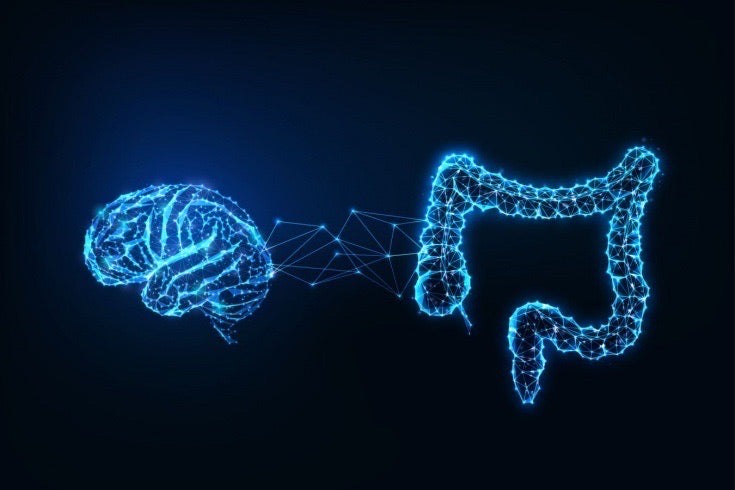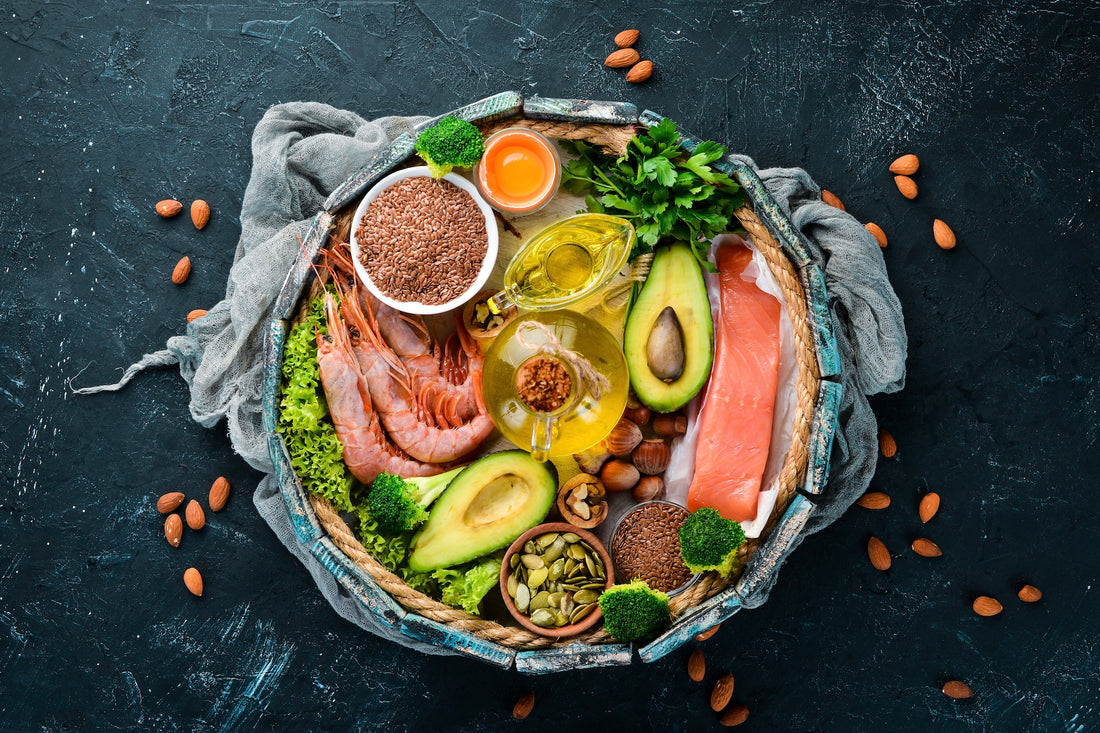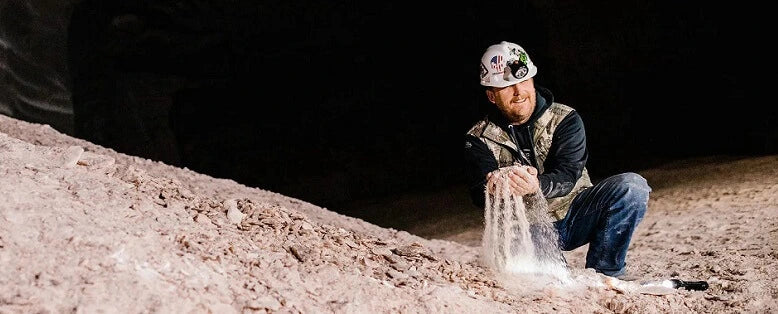This is part 3 of a series of blog posts about improving your sleep quality with 6 new tips. The first 6 sleep quality tips (Avoid blue light in the evening and at night, Magnesium, Zinc, B Vitamins, Taurine and Serotonin precursors) can be found in the article "How to sleep better part 1". The second blog post with six tips for better sleep (GABA precursors, Sleep Induction Mat, Collagen Protein, Bone broth
Sleep tip 13: PQQ
PQQ stands for Pyrroloquinoline
PQQ’s most important mechanism of action is creating new mitochondria within the body. Mitochondria are some sort of “energy factories” within a cell. PQQ leads to the creation of new mitochondria, with long-term supplementation. PQQ is the only supplement on the current market that has this mechanism of action. Other ways to increase the amounts of mitochondria within the body are fasting and exercise.
Furthermore, PQQ improves sleep quality in different ways.[1] PQQ not only decreases the time it takes to fall asleep but also causes you to sleep through the night and increases the total hours of sleep when these hours are necessary.
For the best use, we would suggest using 10-20mg BioPQQ every day, for a
Sleep tip 14: Cold Therapy (Cold Thermogenesis)
Wim Hof from the Netherlands is the best-known person in the world in the area of cold applications right now. He is called “the Iceman” and climbed the 6000m high Kilimanjaro in his shorts. Cold therapy has many different advantages for general health, like improved fat burning, the formation of more (healthy) brown fat tissue, a stronger immune system, it has anti-aging benefits, increases metabolism and causes you to have a very clear mind. In this article, we will only treat the benefits in the area of sleep.
There exists a strong relationship between the amount of brown fat within the
Very specific research into cold therapy shows and sleep quality still
Sleep tip 15: Vitamin D3
Vitamin D has reached the spotlights in the last few years. For example, Vitamin D has large effects on heart disease and winter blues and depressions. It is less well known that vitamin D also has important effects on our circadian cycle. The two most important sources of vitamin D are the sun between the end of March, and the end of September, and some animal products like fish and eggs. For that reason, most people supplement with vitamin D3 capsules during wintertime.
Vitamin D3 should not be taken during the evening, In the same way, that blue light is not healthy during the evening and night. Vitamin D is normally produced when sun rays hit our skin. The production of Vitamin D is only possible during periods when the sun is at the highest angle from the earth. Around the equator, it is possible to get Vitamin D from the sun year-round. But, in the Northern Hemisphere, vitamin D from the sun is only produced during spring and summer.
When low levels of vitamin D3 are present within the body, this will lower the quality of the sleep cycle [3]. People with low vitamin D levels take longer to fall asleep [4]. Low levels of vitamin D are even related to sleepiness during the day [5].
How to use vitamin D: The most important tip is to get your Vitamin D levels in your blood tested. There is some disagreement about Vitamin D supplementation. Old government guidelines recommend 600 – 800iu each day while the Vitamin D Council recommends you to supplement with around 5.000
Sleep tip 16: Phosphatidylserine
Just like PQQ, phosphatidylserine sounds like an exotic supplement, and just as PQQ, the effects on sleep quality are not well known. The most important mechanism whereby phosphatidylserine (PS) increases sleep quality, is by lowering the stress levels within the body. PS influences a hormone called cortisol. PS is naturally present in fatty fish and organ meat. Muscle meat from land animals also contains
Besides cognitive and athletic benefits, PS also influences sleep. As stated before, PS lowers the stress levels within the body [6]. PS also increases recovery after training sessions, and it lowers the stress response that comes with training [7]. For those reasons, PS can be a great supplement that can be used while having a heavy exercise regime. Furthermore, PS should be taken in the evening to lower the stress response before going to sleep, and to recover from a training session.
PS also influences mental wellness. Even acute stress can be influenced with PS [8]. It also improves general mood. All these facts make PS an amazing supplement to increase sleep quality, especially
Best use: 600 – 800mg every day, best taken before sleep or after a workout. Supplementing with PS can be pricey. To consume 800mg of PS, you can also eat 200g of Herring or Mackerel. PS is also sold as a supplement in capsule form.
Sleep tip 17: Meditation
Meditation is one of the most important tools to decrease stress and therefore increase sleep quality. An additional benefit is that the effects of meditation have been researched very well. There exists a lot of scientific proof that argues for the benefits of meditation. The “alternative” character of meditation is slowly replaced with a conception of meditation that is rigorously tested and supported by the scientific evidence.
The list
There have been some specific studies that investigate the effects of meditation upon sleep. Meditation increases sleep quality and length [10]. Meditation affects sleep by a cognitive mechanism, by decreasing thoughts that puzzle over daily life and worrying thoughts.
Best use: Helfi is not an expert in the field of meditation, but most Helfi personal
Sleep tip 18: Huperzine-a
Huperzine A is a substance that influences certain neurotransmitters, just like taurine or 5-HTP. Huperzine A influences the acetylcholine neurotransmitters in the brain. One of the roles of acetylcholine is regulating tension within the nervous system.
Huperzine A’s main effect influences REM sleep, which is a deep sleep where dreams occur. Contrary to a lot of other suggested supplements, Huperzine A has to be taken during the day, because it has stimulating effects. Huperzine A is frequently used to increase the number of dreams, their intensity, and is even used to increase the amount and intensity of lucid dreams. Tim Ferris, a famous biohacker, has tested Huperzine A and states that it increases the amount of REM sleep up to 20 – 30 %. Good scientific studies on Huperzine A could not yet be found by Helfi, but these should be expected in the future because of the great anecdotal evidence.
Best use: 50-200mcg a day, spread over the day. You should slowly increase the dosage up to 200 mcg as side effects could emerge. Side effects usually occur when dosages are too high. Another method to prevent side effect is by only using Huperzine A at a maximum of three days a week.
More tips to improve your sleep
You’ll find the next six tips for better sleep at Sleep better part 4. In the fifth article How to apply the sleeping tips, all tips will be ordered, and a strategy that is based on individual costs and circumstances will be given.
References
[1] Masahiko Nakano, Tetsuro Yamamoto, Hisayoshi Okamura, Akira Tsuda Yasuyuki Kowatari, Effects of Oral Supplementation with Pyrroloquinoline Quinone on Stress, Fatigue, and Sleep, Functional Foods in Health and Disease 2012, 2(8):307 - 324
[2] Tan DX, Manchester LC, Fuentes-Broto L, Paredes SD, Reiter RJ. Significance and application of melatonin in the regulation of brown adipose tissue metabolism: relation to human obesity. Obes Rev. 2011 Mar;12(3):16.
[3] Gominak SC, Stumpf WE. The world epidemic of sleep disorders is linked to vitamin D deficiency. Med Hypotheses. 2012 Aug;79(2):132-5.
[4] Shiue I. Low vitamin D levels in adults with longer time to fall asleep: US NHANES, 2005-2006. Int J Cardiol. Epub 2013 Jul 27.
[5] McCarty DE, Reddy A, Keigley Q, Kim PY, Marino AA. Vitamin D, race, and excessive daytime sleepiness. J Clin Sleep Med. 2012 Dec
[6] Monteleone P1, Maj M, Beinat L, Natale M, Kemali D. Blunting by chronic phosphatidylserine administration of the stress-induced activation of the
[7] Starks MA, Starks SL, Kingsley M, Purpura M, Jäger R. The effects of phosphatidylserine on endocrine response to moderate intensity exercise. J Int Soc Sports Nutr. 2008 Jul 28;5:11. doi: 10.1186/1550-2783-5-11.
[8] Benton D, Donohoe RT, Sillance B, Nabb S. The influence of phosphatidylserine supplementation on mood and heart rate when faced with an acute stressor. Nutr Neurosci. 2001;4(3):169-78.
[9] Goyal M, Singh S, Sibinga EM, Gould NF, Rowland-Seymour A, Sharma R, Berger Z, Sleicher D, Maron DD, Shihab HM, Ranasinghe PD, Linn S, Saha 2, Bass EB, Haythornthwaite JA. Meditation programs for psychological stress and well-being: a systematic review and meta-analysis. JAMA Intern Med. 2014 Mar
[10] Winbush NY, Gross CR, Kreitzer MJ. The effects of mindfulness-based stress reduction on sleep disturbance: a systematic review. Explore (NY). 2007 Nov-Dec;3(6):585-91.











